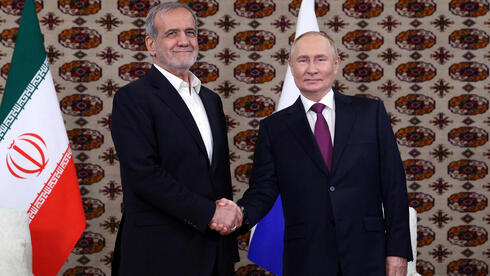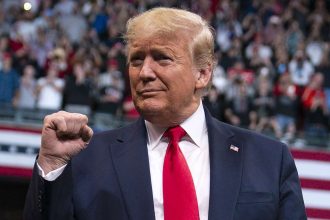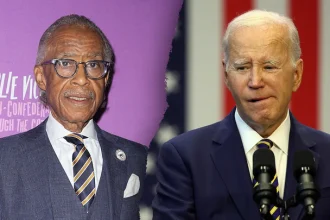Russia and Iran are on the cusp of signing a comprehensive strategic partnership pact, a move that promises to cement their growing alliance and challenge the dominance of Western democracies. This pact, which is set to be signed in the coming days, has far-reaching implications for global politics, and its consequences will be felt for years to come.
The Kremlin’s press service said on Monday that Russian President Vladimir Putin and Iranian President Masoud Pezeshkian will sign a strategic partnership agreement during the latter’s visit to Russia on January 17.
The two leaders are also expected to discuss expanding Russian-Iranian bilateral cooperation in “trade, investment, transport, logistics, the humanitarian sphere, and current issues on the regional and international agenda,” the statement read.
The Russian-Iranian partnership agreement will focus on transport, energy, defense, and regional cooperation. The North-South Transport Corridor, an infrastructure project connecting Russia, Iran, and several other countries, is expected to be one of the “central pillars” of the partnership.
The two leaders met at a summit of the BRICS group in Kazanin in October last year; Putin told Pezeshkian he valued “truly friendly and constructive ties” between Russia and Iran.
Moscow has been Tehran’s traditional partner, but their cooperation only intensified in 2022 following Russia’s full-scale invasion of Ukraine, and Western sanctions have also drawn the two nations closer.
Ukraine and the West have accused Iran of providing Russia with thousands of self-detonating Shahed drones for use on the battlefield in Ukraine and helping launch their production in Russia. The Iranian drone deliveries, which Moscow and Tehran have denied, have allowed for a barrage of long-range drone strikes on Ukraine’s infrastructure.
However, their alliance suffered a major blow last December when Syrian rebels ousted dictator Bashar al-Assad, who was supported by both Russia and Iran.
The Strategic Partnership pact between Russia and Iran is not an isolated incident; Putin signed a similar partnership agreement with North Korea, under which both parties agreed to military support each other in case of an armed attack. Months after the deal was signed, North Korea dispatched up to 12,000 troops to help fend off a Ukrainian incursion in Kursk Oblast.
Many critics have questioned the timing of Pezeshkian’s visit to Moscow, as the signing of the comprehensive strategic partnership pact is three days before the inauguration of U.S. President-elect Donald Trump on January 20, who has pledged to broker a peace deal on Ukraine.
The question on everyone’s mind is: How will the West and Ukraine respond to the comprehensive strategic partnership pact signed by Russia and Iran? Will this move attract more Western sanctions or help Moscow and Tehran restore their economies that are currently affected by sanctions?














